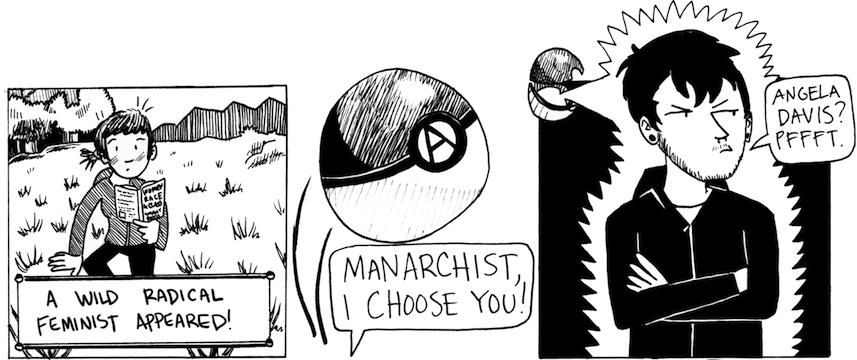Feminism, a long way from equality
Illustration courtesy K Funk/KFunkComics.
March is Women’s History month. Throughout the week many events were hosted at UND.
We have come a long way toward reaching equality. In the past century American women have gained voting rights, access to birth control and have taken many other steps towards being equal .
Yet, even with these leaps and bounds, half of the time I hear the word “feminism” used, it’s used as an insult. The word is thrown around with venom, equating feminists to school bullies who only want power.
There is so much wrong with this. Feminism is partially about power, but it’s not about achieving a matriarchy. Feminism concerns itself with the distribution of power and leveling the playing field. It’s not about taking down “the man” but about equalizing the sexes. Feminism is, and should be viewed as a positive label. It isn’t anti-men, but pro-equality.
Even with all the advances we’ve made, we still aren’t there yet. Women are still viewed as second class citizens. We are still used as objects in the media. Rape cases still involve more victim shaming than perpetrator prosecution.
With all the advances our society has made, it seems cynical to point out the places we still need to improve. However, mentioning that reality is far from where it needs to be isn’t cynicism.
To think that we are there, that we have finally finished the journey toward equality, is naive at best. Look at a magazine rack to see how far we have yet to go.
Women are still encouraged to stay in the kitchen and make sandwiches. Half of the magazines geared at women are geared towards those who stay home with the family. The other half — the Cosmo group — is geared at pleasing men with our appearance and sexual skill.
I have nothing against those who like to work in the kitchen and dress in pretty clothing. There is nothing wrong with embracing femininity. But when it is forced, it is oppressive.
As much as we like to try to ignore it, women are still stuck in the kitchens of society. We can start changing this reality a little at a time.
These don’t have to be grandiose gestures of goodwill; the steps can be simple. Start using inclusive language, like humankind instead of mankind. Notice the biases you have and work to change them. Work towards environments that are inclusive whether its work, family or friends. Don’t stay silent when you witness oppression.
Change is possible; history proves this. There are ways to make things in this world better. That’s what feminism is to me — a focused effort to bring everyone up to the same level regardless of gender.
Feminism isn’t evil, nor anti-man. Yet, some people still perceive it as threatening. Whether this is because of preconceived notions of what feminists are, or deeply held beliefs about a woman’s “place,” feminism still sees resistance.
What feminists fight for was said best by Susan B. Anthony: “We ask justice, we ask equality, we ask that all the civil and political rights that belong to citizens of the United States, be guaranteed to us and our daughters forever.”
It isn’t about being a woman, but about being equal. Brothers, sisters, daughters, sons, mothers, fathers and everyone in between deserve equality, and that isn’t too much to ask.
Kjerstine Trooien is a staff writer for The Dakota Student. She can be reached at kjerstine.trooien@my.und.edu.







